
The Chinese drama "Aquatique" won one of the top awards at the 2012 Avignon Theater Festival in France. It's now playing at the Ke Center for the Contemporary Arts in Changning District in Shanghai.
The show takes minimalism to a new level, with simple props, no stage settings, and not a single word of dialogue. Actors and actresses in this drama use just their body language and some music to tell the story. And they wear different colored masks, to prevent exposing any part of their bodies during the performance. The performers describe the play as a pure physical drama, but it is actually a kind of traditional art form known as Nuo Opera that is popular in many provinces in China, from Hebei in the north, to Guizhou in the southwest.
The drama, which tells the story of a water ghost who wants to kill a human to reincarnate into another life, was adapted from a more than 300-year-old Chinese ghost story by author Pu Songling. Some theatergoers say this kind of drama is very different, but also appealing to them.
Theater-goer Chen Yan said, It's so different from the dramas I have watched. We understand the soul of the play just by the performers' body language, and everyone's understanding can differ a lot. The pleasure of watching the show can only be sensed. We need to concentrate at the theater."
Theater-goer Chen Zhongda said, "Although performers don't speak in the show, I can feel the emotions of the roles. I can feel kindness and evilness, friendship and betrayal. I like to watch a drama with an ancient background, but in a new style."
The show debuted in France last June, and Shanghai is the second stop of its domestic tour after it was staged at the National Center for Performing Arts in Beijing last September. This is the second time for the show's production company San Tuoqi to visit Shanghai. One of the actors says they are looking forward to receiving more feedback from local audiences.
Actor Zhang Shengyue said, "Shanghai audiences can always accept new things. So we would like to have local spectators not only understand the play, but also accept our style of stage performance. Meanwhile, to improve our trial in this style, we need to have more communication and discussions with audiences."
The director of the drama says physical plays, especially those that have traditional Chinese elements, sell well overseas, because there is no language barrier for audiences to deal with.
Zhao Miao, director of "Aquatique", said, "By showing our art form in a more contemporary and more international way, we are trying to promote traditional Chinese art and Chinese stories in western countries. Meanwhile, we hope that this art form can earn more recognition and appreciation from local audiences."
Around 20 pure physical dramas produced by Chinese artists were staged around the world in 2012, but stages in Shanghai only hosted three such plays last year. The situation may improve a little this year. Among the more than 60 plays scheduled for the city this year, six are physical dramas. "Aquatique" runs through January 20th, and tickets are still available. After the Shanghai tour, it will visit Suzhou, Hangzhou and Edinburgh, Scotland later this year.

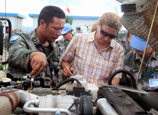
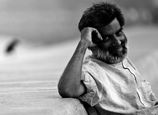
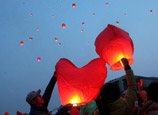

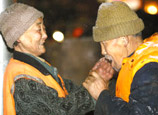

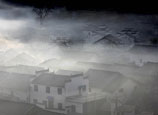








 Sanitation worker, environmental protector in city
Sanitation worker, environmental protector in city


![]()
